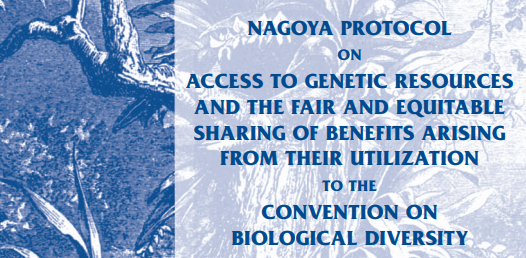
Researchers that use non-human genetic material that originates from outside the UK must comply with the Nagoya Protocol.
The Nagoya Protocol applies to
- non-human genetic material (plant, animal, microbioal microorganisms, fungi and other viruses) that originate from other countries [human material is exempt]
- traditional knowledge (aTK) associated with the genetic material
The Nagoya Protocol is an international legal framework that helps to ensure fair and equitable sharing of benefits (ABS) arising from the utilisation of genetic resources from other countries.
How to comply with the Nagoya Protocol
- Before researchers collect, receive or use any non-human genetic material that originates from outside the UK they should:
- complete basic checks to assess the relevance of the Nagoya Protocol (see stages 1 & 2 of Nagoya Protocol checklist) and
- keep records of the decision that the Nagoya Protocol do not apply to their work.
- In some instances, researchers may need to take further actions to comply with the Nagoya Protocol including:
- undertaking further due diligence efforts to rule out the existence of applicable Nagoya/ABS restrictions
- obtaining ABS approval/permission from the relevant authority
- recordkeeping of due diligence actions and/or ABS documentation
- submitting a due diligence declaration
If step 2 applies, please contact Sinead Healy (srh67@cam.ac.uk) who will provide advice and support.
Help and further information
For further University guidance, please read the Nagoya webpage on the research operations website.
For further advice regarding Nagoya Protoco and support seeking ABS approval, please contact:
- Dr Sinead Healy (srh67@cam.ac.uk)
- Research governance team at researchgovernance@admin.cam.ac.uk (please include 'Nagoya Protocol' or 'ABS' in the subject line)
